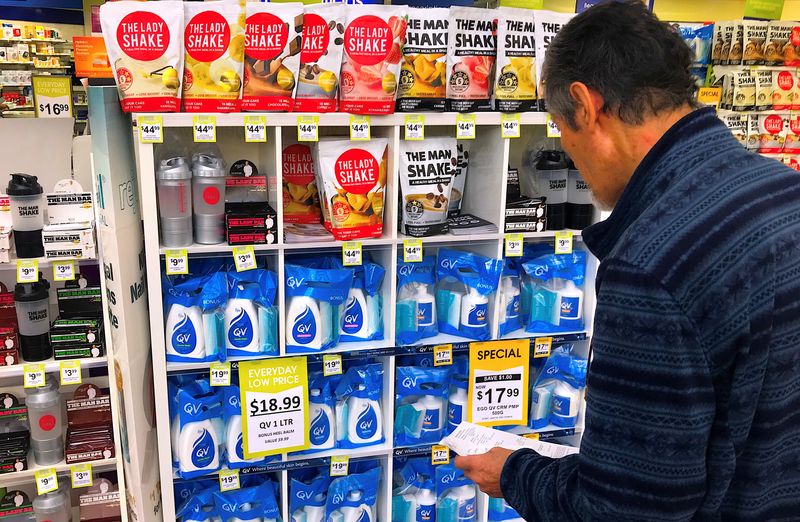Select Language

By Stella Qiu
SYDNEY (Reuters) -Australian inflation was surprisingly strong in the third quarter amid broad-based and stubborn cost pressures, a headache for policymakers that added greatly to the risk of a rise in interest rates as early as next month.
Investors reacted by narrowing the odds on the Reserve Bank of Australia (RBA) restarting the tightening cycle next month after four months of pauses, with futures now pricing in a 66% chance of a quarter-point hike to 4.35%, compared with 35% before the data.
Data from the Australian Bureau of Statistics on Wednesday showed the consumer price index (CPI) rose 1.2% in the third quarter, above market forecasts of 1.1% and up from a 0.8% increase the previous quarter.
The annual pace of inflation slowed to 5.4%, from 6.0%, but was again above forecasts of 5.3%. For September alone, the CPI rose 5.6% compared to the same month a year earlier, up from 5.2% in August.
A closely watched measure of core inflation, the trimmed mean, rose 1.2% in the third quarter, to top forecasts of 1.1%. The annual pace slowed to 5.2%, from 5.9%.
The Australian dollar rose 0.6% to a week high of $0.6398 and three-year bond futures tumbled 15 ticks to 95.68, the lowest since 2011. Markets are now seeing rates peaking at 4.45% early next year, up from 4.35% before the data release.
Adam Boyton, head of Australian research at ANZ, now sees a quarter-point hike from the RBA next month, given the uncomfortably high inflation and the recent hawkish guidance from policymakers.
"While 4.35% should mark the peak in the cash rate, there is a risk it could tighten beyond that. Any easing remains a very long way off," Boyton said.
The biggest contributors to the third quarter inflation were fuel, rents, and electricity. Fuel prices rose 7.2% from a year ago, reversing two quarters of price falls, with the conflict in the Middle East potentially set to further stoke inflationary pressures.
Inflation remained elevated for a range of services such as vets, restaurant meals and hairdressers. Rents rose 7.6% from a year ago, the fastest since 2009.
One silver lining in the report is that food prices registered the slowest quarterly rise in two years as prices fell for fruit and vegetables.
Supermarket giant Woolworths said on Wednesday that average prices for the products it sold in the September quarter rose just 2% over a year earlier, a significant moderation compared with previous quarters.
Still, Michele Bullock, the new RBA governor, on Tuesday warned that there were risks inflation would prove more stubborn than expected and interest rates might have to rise further to bring it to heel.
Policymakers have said they have a low tolerance for allowing inflation to return to target at a slower pace than currently expected. The central bank forecast in August that inflation was only projected to return to the top of the bank's target band of 2-3% in late 2025.
The central bank will release its updated economic forecasts in early November.
"This brisk pace of core inflation signals that cost pressures are broad and heightened in the economy, in part stemming from the very tight labour market," said Sean Langcake, head of macroeconomic forecasting for Oxford Economics Australia.
"Governor Bullock's communications this week have laid the ground work for tighter policy, and the tick up in core inflation could well justify another round of rate hikes."

